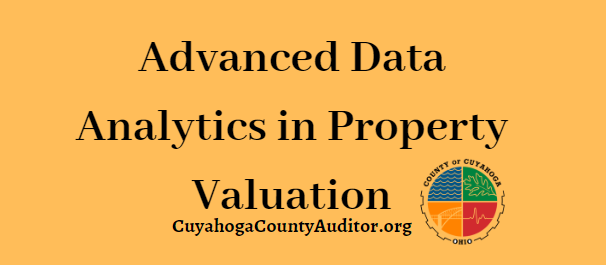Property valuation is a crucial aspect of taxation, with county auditors playing a significant role in assessing property values. In recent years, the adoption of advanced data analytics has transformed the property valuation process, enabling county auditors to make more accurate and efficient assessments. This article explores the use of advanced data analytics by county auditors in property valuation.
Understanding Advanced Data Analytics
Definition and Applications
Advanced data analytics refers to the process of analyzing large volumes of data to uncover patterns, trends, and insights. In property valuation, data analytics techniques such as predictive modeling, machine learning, and spatial analysis are used to analyze property data and assess its value accurately.
Benefits in Property Valuation
The use of advanced data analytics offers several benefits in property valuation, including improved accuracy, efficiency, and transparency. By leveraging data-driven insights, county auditors can make more informed decisions and ensure fair and equitable property assessments.
County Auditor’s Adoption of Data Analytics
Utilization in Property Valuation Process
County auditors utilize advanced data analytics at various stages of the property valuation process, from data collection and analysis to assessment and valuation. By harnessing the power of data analytics tools and techniques, auditors can identify factors influencing property values and make adjustments accordingly.
Improving Accuracy and Efficiency
The adoption of data analytics has significantly improved the accuracy and efficiency of property valuation. By automating repetitive tasks and streamlining workflows, county auditors can process large volumes of property data more quickly and accurately, leading to more consistent and reliable valuations.
Challenges and Considerations
Data Privacy and Security
One of the main challenges in the adoption of data analytics is ensuring data privacy and security. County auditors must adhere to strict data protection regulations and implement robust security measures to safeguard sensitive property information.
Training and Skill Development
Another challenge is the need for training and skill development among county auditors to effectively use data analytics tools and techniques. Continuous training programs and professional development opportunities are essential to ensure that auditors have the necessary skills to leverage data analytics effectively.
Future Trends and Opportunities
Integration of AI and Machine Learning
The future of property valuation lies in the integration of artificial intelligence (AI) and machine learning technologies. By incorporating AI-driven algorithms and predictive modeling techniques, county auditors can further enhance the accuracy and efficiency of property assessments.
Enhancing Decision-Making Processes
Advanced data analytics offers county auditors the opportunity to enhance their decision-making processes and make more informed policy decisions. By analyzing property data and identifying trends, auditors can identify areas for improvement and implement targeted interventions to address them.
Conclusion
The adoption of advanced data analytics represents a significant advancement in the field of property valuation, enabling county auditors to make more accurate, efficient, and transparent assessments. By embracing data-driven insights and leveraging cutting-edge technologies, auditors can ensure fair and equitable property valuations for taxpayers.
